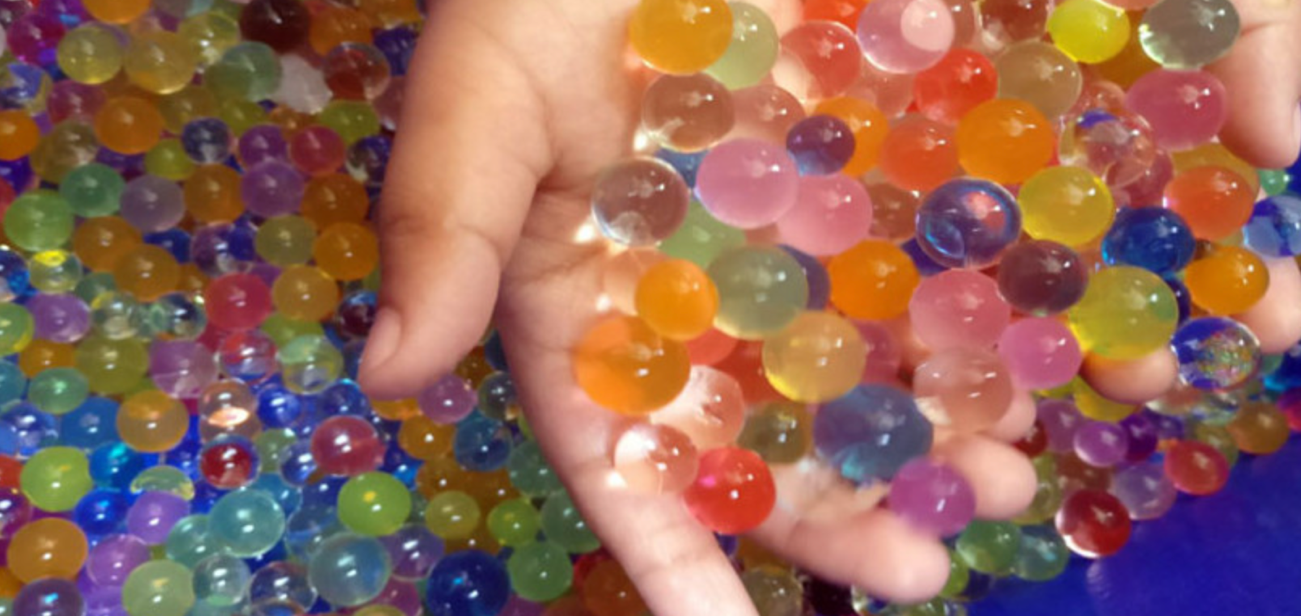With many children still at home in virtual school, we continue to see a rise in accidental ingestions, as many are left unsupervised for periods of time. Historically, about 40 percent of ingestions of foreign objects by children are unwitnessed. And although we still see the classic child-hood favorite ingested objects, such as coins, plastic beads, and Legos, and continue to fear the increasing amounts of swallowed rare-earth magnets and the rise of magnetic toys, there is another product that has received less noticed attention, water absorbing beads. We have all seen them, and most of us likely have them somewhere in our home, as their ubiquitous use has gained popularity over the past several years.
They go by many names: jelly balls, water beads, fairy eggs, dragon eggs, gel beads, hydro orbs, or brands like Orbeez or Water Balz. These water absorbing pellets contain varying amounts of super-absorbent polymers, typically containing acrylic acid, sodium hydroxide, and color additives, most of which are non-toxic. They are often seen used in indoor gardening, crafts, and as sensory toys. The problem is that these polymers can absorb amounts of water large enough to expand each bead up to 400 times its original size! They are also small, bright, and colorful, and unfortunately, look very similar to candy. And as they do not have a bad taste, are easily swallowed.
Studies have shown that these super-absorbent polymers usually grow the fastest in the first 12 hours, meaning that if ingested, can usually pass through the esophagus and stomach, but may ultimately get stuck in transit in the lower GI tract. Locally, we have seen several recent months of children ingesting varying amounts of these to the point of causing intestinal obstructions requiring endoscopic or surgical removal.
If it is known that a child has swallowed any number of these, the recommendation is to seek prompt medical evaluation and endoscopic removal prior to them leaving the stomach and if not found endoscopically, may require surgical removal.

Prepared by Duy P. Tran, D.O., Clinical Fellow, Pediatric Emergency Medicine
I am interested in any questions you would like answered in the Question of the Week. Please email me with any suggestion at donna.seger@vumc.org.
Donna Seger, MD
Executive Director
Tennessee Poison Center
Poison Help Hotline: 1-800-222-1222